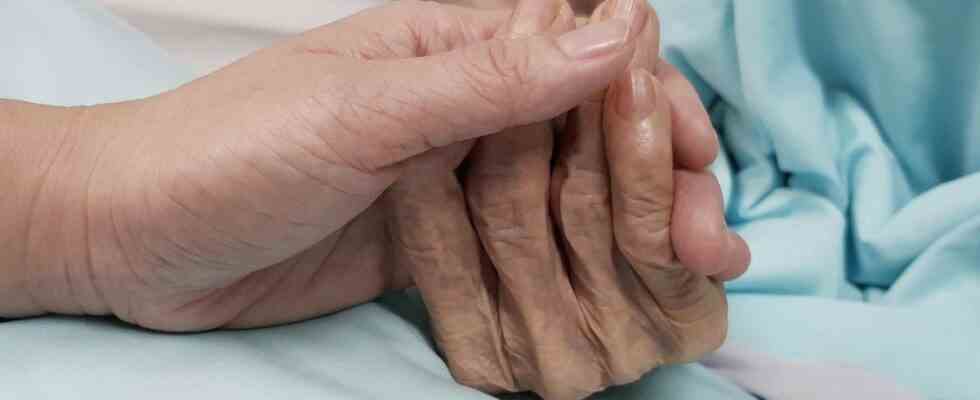And the additional number… This Tuesday opens the start of the draw for “citizens who will form the convention” on the end of life. This is an announcement from the Economic, Social and Environmental Council (Cese), responsible for organizing the debates. But how will the chosen ones be chosen? Will they be representative of the French population? What will their mission be? 20 minutes provides an update on this new government citizen consultation.
Who will be the chosen citizens?
Claire Thoury, president of the governance committee of the Citizens’ Convention on the end of life, and member of the Cese, recalled this on France Info this Tuesday: “The challenge is really to have a diversity of points of view that are heard and a diversity of profiles that are brought together”. To do this, the 150 members of this new Convention will be drawn by lot. However, the government is not relying on chance.
The Harris Interactive Institute will, in fact, constitute a representative sample of the population, as in a survey. Volunteers will be recruited using the telephone lists provided by the operators. Gender, age, place of residence, region of origin, socio-professional category or level of diploma will be taken into account. The faiths of the participants will not play into the selection process, although they may influence their opinion on the matter. Last Friday, Pope Francis urged French MPs not to make euthanasia legal, as the Catholic religion considers it a “crime against human life”.
Similarly, caregivers – who could be called upon to play a role in these new practices at work if the legislation is amended – or people who have already been confronted with an end-of-life situation will not be excluded. “There are no excluding or favoring criteria. We are as open as possible, ”said Claire Thoury on France Info. Emmanuel Macron thus hopes to create a “mini-France” and save himself a referendum, the idea of which he has already rejected.
How will this Convention unfold?
When the citizens are selected and have agreed to participate in the debate, the process can begin. They will meet for the first time on December 9, 10 and 11 at the Cese headquarters in Paris to start discussing the issue. In all, ten meetings are planned, until March when they will report their conclusions. Volunteers will receive compensation and reimbursement of their expenses.
“To better understand the realities of the end of life”, the French Society for Support and Palliative Care (Sfap) has proposed providing each member of this agreement with a one or two-day immersion in palliative care. The volunteers’ discussions will focus on one question: “Is the end-of-life support framework adapted to the different situations encountered or should any changes be introduced?” »
It is from these debates that the government will decide whether or not to change the Claeys-Leonetti law on medical support at the end of life. Euthanasia and assisted suicide are legal in neighboring countries like Belgium or Switzerland. In France, according to an IFOP survey in 2021, 93% of French people believe that “French law should authorize doctors to end, without suffering, the lives of people with unbearable and incurable diseases if they so request”.
And then an app?
If the Elysée and the government returned the responsibility for the debates to this citizens’ convention, in 2019 and 2020, they had decided to retain only a congruent part of the proposals of the citizens’ convention on the climate. It is therefore not certain that the conclusions of the volunteers will be followed by the government.
It is also possible that other consultations will be organized, as the Prime Minister had specified at the beginning of October. “It will be up to the Cese to “carry out other forms of citizen consultation if it deems it useful to shed light on this debate”, underlined Elisabeth Borne at the time. “Throughout this debate, consultations with stakeholders, in particular health and support professionals, will be led by the government,” she adds.
However, the conclusions of the citizens’ convention collected by the Cese, which will be used to inform the government, “must be given to me by the end of March 2023”, further specifies the Prime Minister. Still, Emmanuel Macron aims to make the end of life the major societal reform of his second five-year term. And the signals are green for the president: in early September, the National Consultative Ethics Committee (CCNE) recommended a national debate and deemed it possible to legalize “active assistance in dying” if it is subject to strict conditions. It remains to be seen whether the volunteers selected by the Cese will share this opinion.

